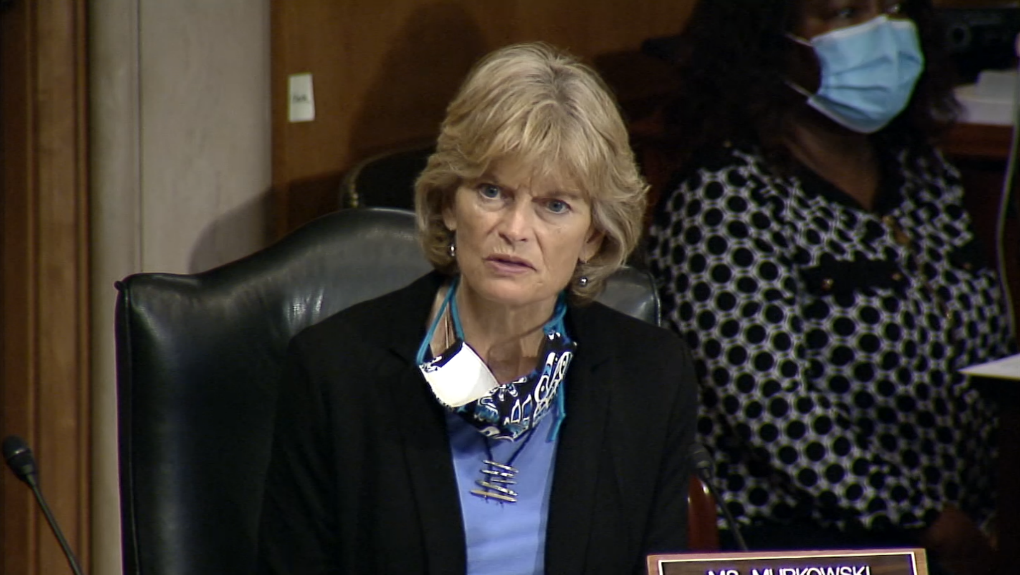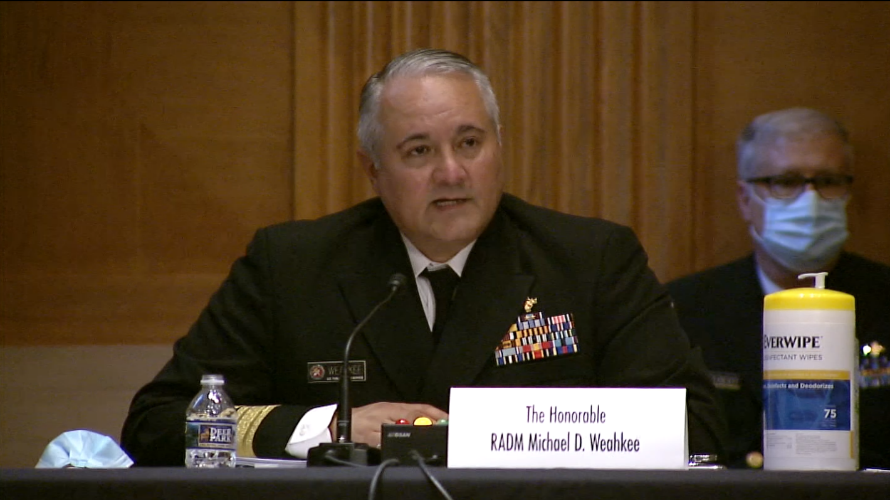Murkowski Joins Committee Hearing on Addressing COVID-19 Impact to Native Communities
U.S. Senator Lisa Murkowski (R-AK) took part in a Senate Committee on Indian Affairs oversight hearing focused on evaluating the response and mitigation to the COVID-19 pandemic in Native communities across the nation. This hearing is particularly relevant to Alaska, as many Native communities currently reflect on previous health emergencies that have disproportionately impacted rural Alaska, such as Tuberculosis and the 1918 flu epidemic. The hearing featured testimony from IHS Director, RADM Michael Weahkee; FEMA Regional Administrator for Region 9, Robert Fenton Jr.; Executive Director of the North Dakota Indian Affairs Commission, Scott Davis; and National Indian Health Board Secretary, Lisa Elgin.

CLICK HERE for video.
In her opening statement, Senator Murkowski discussed the troubling health disparities and economic impacts of the COVID-19 pandemic on Native American, Alaska Native, and Native Hawaiian populations. She also highlighted the considerable, aggressive, and expensive efforts that have been made to keep the virus out of Alaska’s vulnerable Native communities, emphasizing the importance of delivering coronavirus relief funds secured within the CARES Act in a quick and fair manner.
“What has been done in many communities, primarily remote, Alaska Native communities, is they have voluntarily shut themselves off from the rest of the world. They have said they do not want travelers. They do not want the mail plane to come in. They don’t want a plane that is going to be delivering the fresh goods for the grocery store, because they are so concerned about how this this virus may repeat history—do a repeat from the 1918 flu, the Spanish Flu, that wiped out many Alaska Native villages. And Natives around the state today remain fearful of just that impact.” said Senator Lisa Murkowski. “We all share the same goal here. We want to get this much needed funding out to tribes across the country—and we will do so. But we have to ensure that it is done in a fair way so that those costs that have been associated with this pandemic are reimbursed and are reimbursed fairly and fully.”
Senator Murkowski also highlighted some of the difficulties Alaska faces in terms of water and wastewater and explained how those challenges impact the COVID-19 response efforts. Murkowski asked IHS Director RADM Weahkee about what efforts are being done to provide for Alaska’s Native communities that lack access to adequate sanitation which is essential to preventing and mitigating the spread of COVID-19.
“When you’re telling people to follow certain safety protocols like washing your hands frequently, when they are in an area where they don’t have access to clean running water, this is very hard. It highlights how essential adequate sanitation is for our communities. Of the 190 Alaska Native communities, 32 are still not served with in-home running water,” said Senator Murkowski. “So it speaks to the issue that so many rural communities lack access to adequate water. And this comes when you have extraordinarily high construction costs in those communities. IHS has established cost caps per home, that when approached both decrease the priority of the project in the scoring system and limit the amount of funding available. So my question to you admiral is whether or not IHS would be willing to eliminate, or at least to raise, the cost caps for projects that provide for the piped water and sewer into these unserved communities. We’ve got to figure out how we can do more to be more responsive to get water and sanitation out.”

CLICK HERE for video.
RADM Weahkee recognized the dire need for water and sanitation services in Alaska Native communities such as Wales and Shishmaref. He also discussed collecting data to analyze whether the cost caps per home are meeting the community needs. RADM Weahkee also noted that the agency has some flexibilities to waive certain regulations and policies if they are impeding infrastructure projects. Senator Murkowski urged the IHS Director to look at those authorities to address these issues that have been emergencies for far too long.
BACKGROUND:
- On June 26th, the Alaska Delegation applauded the court ruling that defined how Alaska Native Corporations can receive a share of the $8 billion in funding set aside for Tribal governments that Congress approved in March.
- On April 6th. Senator Murkowski joined a bipartisan, bicameral group of members of Congress on a letter to President Trump requesting that federal agencies implementing the Tribal provisions of the CARES Act do so in a manner that upholds the federal trust and treaty responsibilities to Indian Tribes, respects Tribal sovereignty and provides for meaningful government-to-government consultation with Indian Tribes.
COVID-19 SAFETY NOTICE:
In accordance with the U.S. Senate’s Attending Physician and the U.S. Senate Sergeant at Arms, in consultation with the Department of Health and Human Services and the Center for Disease Control and Prevention, Senate hearings have enacted the following adjustments to help ensure the health and safety of all participants during the COVID-19 pandemic: Members were seated six feet apart to respect social distancing guidelines; Participants were given the option to take part in the hearing by video conference; To maintain social distancing, very limited seating was accommodated; Members wore masks to and from the hearing room, but were allowed to remove masks during the hearing, if they chose to do so, as they were seated 6 feet from other members.








